This blog post was authored by Amanda Taylor, a member of the Tivnu 6 cohort from New Jersey. When she’s not cooking something creative, Amanda enjoys listening to podcasts and crafts like painting pottery. She interns at Children First for Oregon, St Andre Bessette’s Morning Hospitality, and PSU’s Learning Gardens Lab.

In the first couple of months of Tivnu, we went on a few trips that included quite a few hikes. First was a camping trip to Mount Rainier, and then came our Sukkot retreat at Opal Creek, an off-the-grid outdoor education center in an old growth forest. Both times, the thought of hiking made my anxiety skyrocket from one to one thousand. While anxiety is something I constantly work on, I have found some ways to reduce my angst while on the trails. And I’ve found that these strategies can apply to my everyday life in Tivnu and beyond. Whether you have anxiety or not, I think you’ll find this guide to hiking – and to all sorts of challenges – can help you reach new heights, too.
1. Always wear appropriate footwear (a.k.a. Use the Right Tools)
Vans slip-ons … not the best choice of footwear to wear while hiking. I learned the hard way that it is way easier to slip or get stuck on the uneven terrain with Vans, which can be dangerous. I would highly recommend splurging on a nice (already broken in) pair of hiking boots. They have a maximum level of support and, as the name suggests, they are made for hiking.

I’ve also started walking on a regular basis. Being on those hikes helped me realize that going out into nature and walking is a tool that helps ground me and bring me back to reality.
I realized that both for my anxiety and for my life in general, I want to use tools that don’t just get me through a single situation, but continually make me feel empowered and in control of myself and my emotions. Using the right tools is not just about hiking boots. I have found assistive technology like text-to-speech apps that allow me to learn more independently and enrich my participation in Tivnu’s weekly Educational Explorations (EEs). I’ve also grown a lot by talking with all sorts of people who challenge me to think in new ways and work hard: my fellow Tivnuniks, the Tivnu staff, my internship supervisors and coworkers, clients at my internships, visiting educators, and my therapist. Find tools that are helpful to you and add them to your toolbox. Then keep your toolbox easily accessible!
2. Keep your hands as free as possible (a.k.a. Let Things Go)
Balance is a real challenge when I’m holding a water bottle or phone while hiking- I know from experience. Make sure you have a day pack or light backpack to hold a water bottle, phone, extra layers, etc. You need free hands to move forward on the trail.
In my life, I have put burdens on myself that have gotten in the way of moving forward. One burden I’ve carried is the shame of learning differently from other people. For a long time, I felt I was not as smart as my peers. I was frustrated by the amount of support I required from my family and teachers. When I let go of the shame of being dyslexic, though, I found I could soar. When I stopped holding onto that burden, I realized my voice matters and I am just as capable of being successful as my non-dyslexic peers. Sometimes the expectations we put on ourselves help motivate us, but other times they just get in the way and hold us back. Let them go! Be your most authentic self and know that you matter, just the way you are.
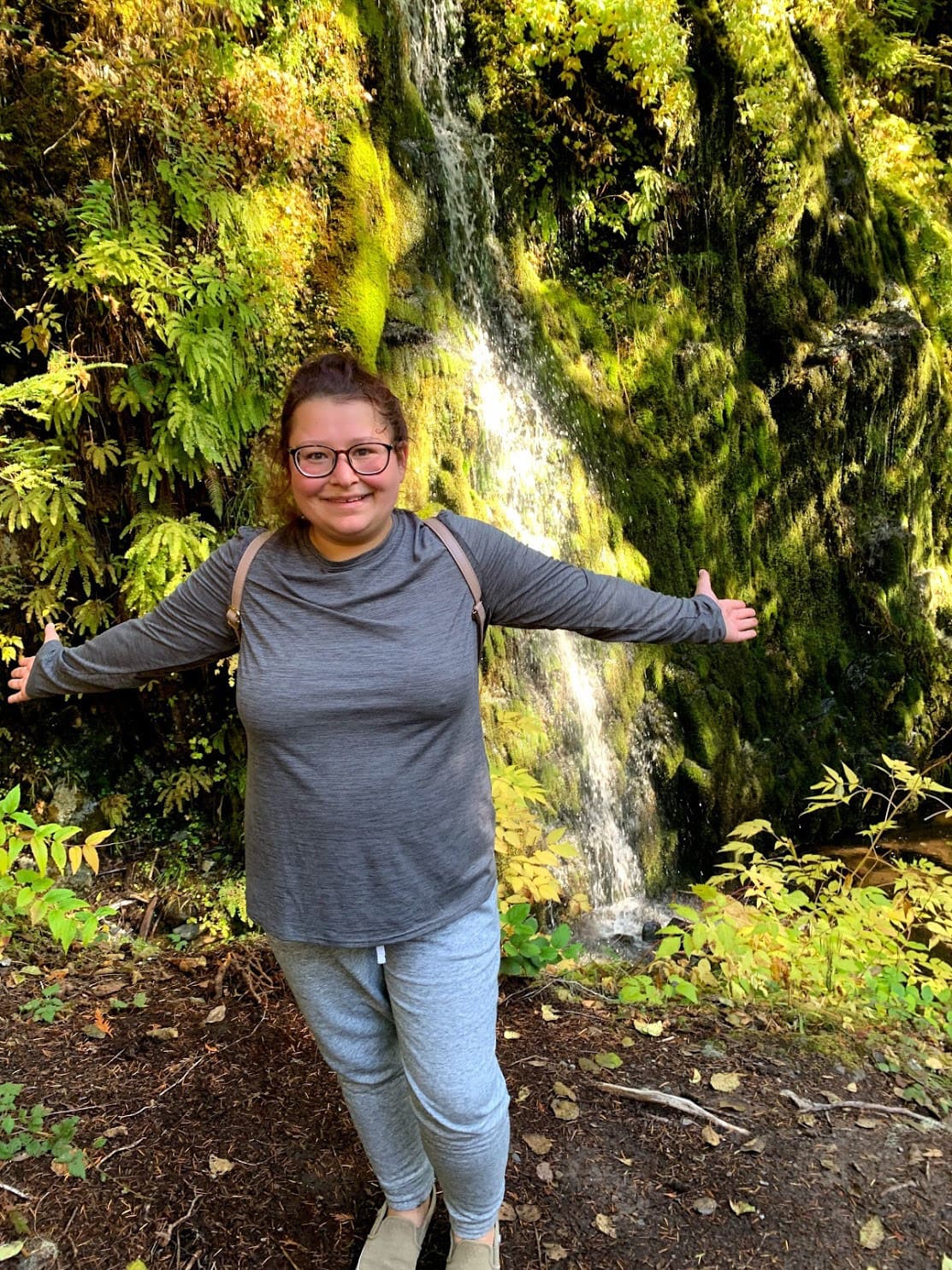
3,.New tools, new me!
3. Don’t confuse the feeling of adrenaline for anxiety (a.k.a. Frame it Positively)
At Opal Creek, there were a few times I had just climbed over a huge rock or gone uphill for ten minutes straight, when I was suddenly overcome with emotions. It felt like anxiety – that’s the only language I’ve ever had for that feeling. I vocalized these feelings to the group, and one of my fellow Tivnuniks suggested that it was probably adrenaline. Soon I realized they were right. It wasn’t sadness or fear I was feeling, but excitement and a sense of pride for getting so far. This reminded me of the importance of positive framing. By thinking of the rush as anxiety instead of excitement, I was getting in my own way of experiencing the hiking and appreciating the scenic views.
This was just like the positive framing I used when I was coming to Tivnu. It didn’t sink in that I was going to be so far from home until a couple of days before my flight out to Portland for the first day of the gap year. I was used to living away from home (I went to a boarding high school), but this was a completely new experience. This was a three hour time change, a plane ride away from my family, and the beginning of my journey into adulthood. I wondered if I was cut out to live on my own and be taken seriously in a professional work environment. The anxiety paralyzed me.
Then, as the first day of Tivnu approached, I reminded myself how much I had worked for this. “The Tivnu Gap Year is a once-in-a-lifetime opportunity,” I repeated to myself. “Tivnu is a once-in-a-lifetime opportunity.” And then, in time, my anxiety dissipated. I’m so glad I used positive framing to give myself a chance to succeed in Tivnu. It’s the greatest experience of my life so far! Whenever self-doubt starts to creep in, remember you are stronger than your thoughts. Tell them who’s boss!
4. Hike with a good group (a.k.a. Surround Yourself with People You Trust and Love)
For years I was terrified to go on hikes with friends or peers. I was a lot slower and always ended up being behind the group, walking and dealing with my fears of slipping and falling alone. Until the Tivnu Mt. Rainier trip, I didn’t realize that it was this feeling of being alone that made me dislike hiking. Going on hikes with the Tivnu crew is entirely different. The staff, my housemates, and I walk and guide each other the entire time, reminding each other what an amazing job we are all doing wen we push ourselves to new heights. I truly believe that support led me not only to make it to the top of our first hike, but to push myself to opt into more difficult hikes later in the trip.
Having people who truly love us by our side is important in everything we do in life – not just hiking. Everyone needs a support system to get through challenging experiences. It’s amazing what you can accomplish when you feel in unity with others, instead of feeling alone. Find those people in your life!
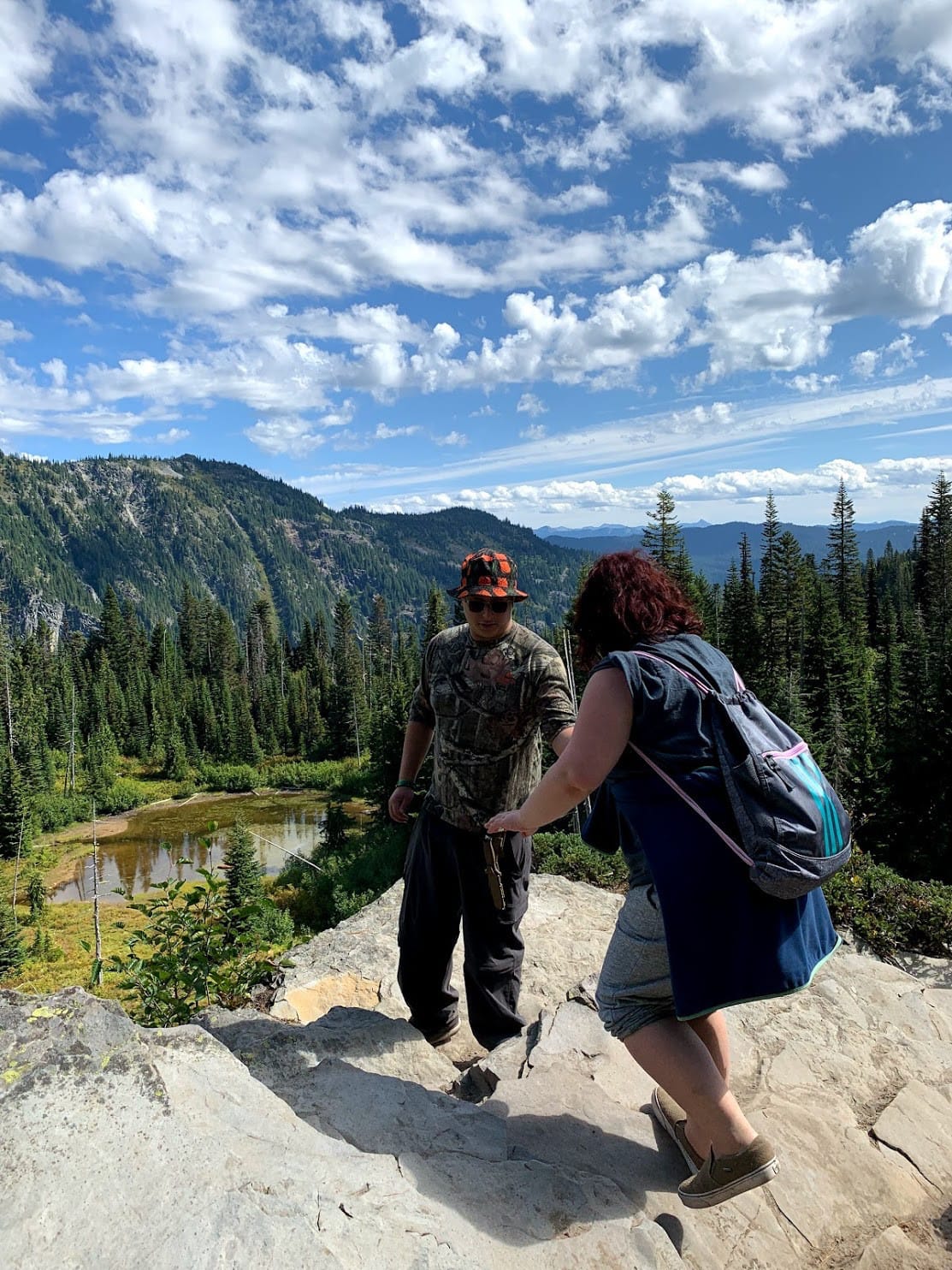
5. Trust your body
Growing up, I struggled with balance and low muscle tone. I was the one kid who couldn’t do the monkey bars at recess. When it was time for my friends and me to take the training wheels off our bikes, they learned to ride and I didn’t. I never stopped falling, no matter how hard I practiced. That feeling of frustration slowly turned into, “I can’t do anything.” Or, “my body isn’t capable of doing this.” These thoughts built up for years and sometimes even became an excuse not to try new things.
I encountered this on our first hike at Mt. Rainier. Whenever T6 (my Tivnu cohort) was approaching a part of the trail that was completely new to me, the “I can’t” excuses were the first thing to come out of my mouth. I was hoping my distress would lead the group to grant me permission to stop. Instead, the group encouraged me to trust my body and gravity. They told me that my body knew exactly what to do and gravity would too. They were right. My body didn’t fail me.
A couple of years ago, I also had to deeply trust my body after I had brain surgery. As you can imagine, brain surgery is a huge ordeal and requires a lot of time to recuperate. In today’s society, though, we are all about keeping busy and getting stuff done; I fell into that trap. I just wanted to get back to my busy life right away. I was reminded that my body knew what it needed to heal properly. I would get my physical stamina back, with time. It wasn’t my body failing me, it was my body hard at work to heal itself. I now truly appreciate what the human body is capable of. I’m glad Tivnu gives me the opportunity to continue exploring my capabilities! Trust your body – it will support you throughout your life.
Give yourself some compliments (a.k.a. Self-Love)
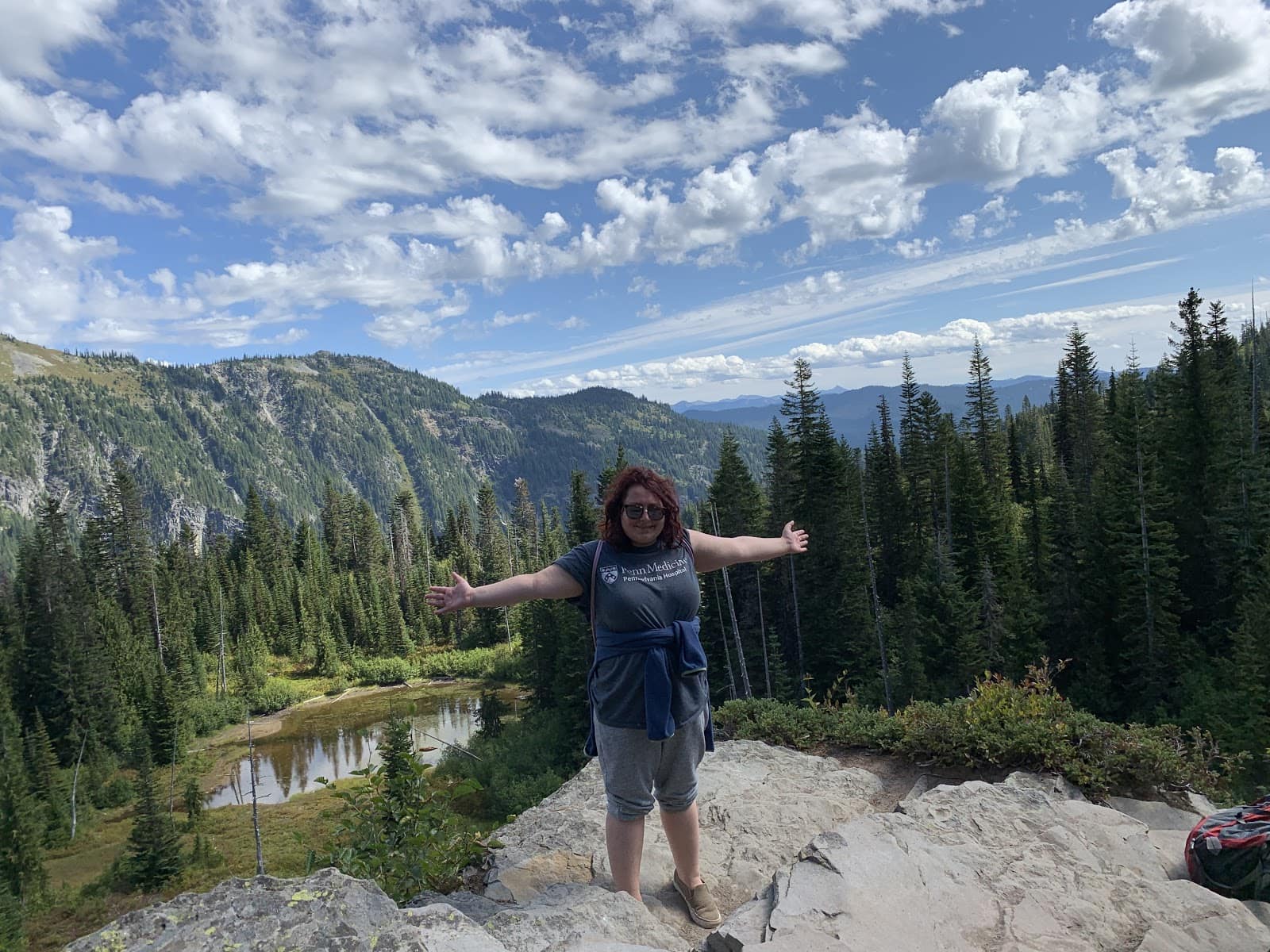
Last but not least, compliment yourself. It sounds so simple, but loving yourself is so important! Every time I reached a rough spot on the trails or accomplished something I didn’t think was possible (like reaching the top of Mt. Rainier), I told myself how great I was doing, that I am capable and strong. I was surprised how the little compliments along the way really shifted my overall mood and, in turn, my capability.
As with hiking, I also try to give myself compliments when I’m reading. Since I’m dyslexic and reading is a real struggle for me, it’s important that I appreciate the immense effort I put into reading, and acknowledge that I’ve made huge strides in recent years. This little bit of self-love motivates me to continue practicing and not give up. Self-love is something we all need to continue to work on and talk about. We deserve to give the same compliments to ourselves that we would to the people we love!
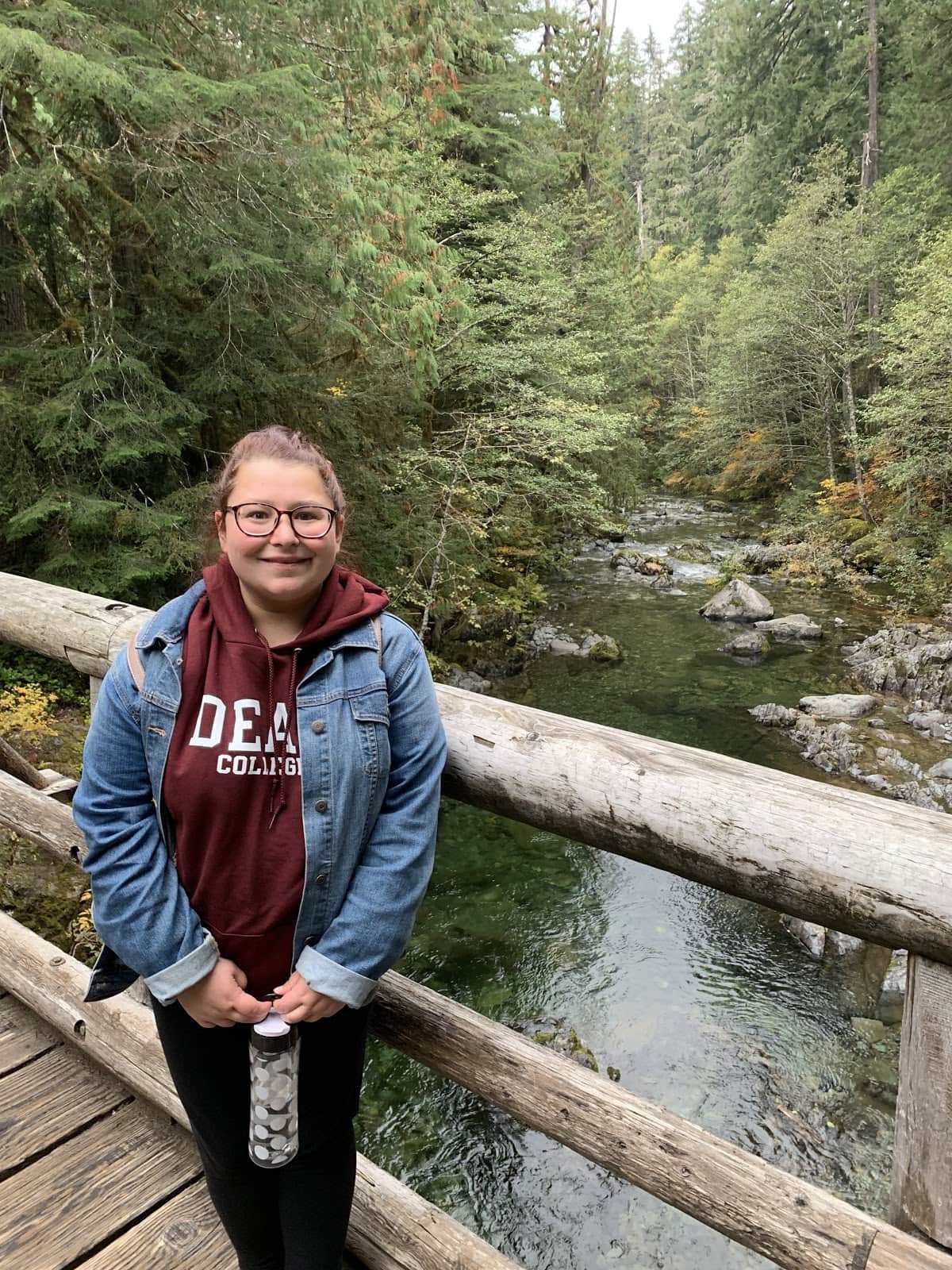
I’ve overcome a lot of obstacles – in hiking and in my life – and I can already see how the tools I’ve used and sharpened at Tivnu have helped me and will continue to help me reach new heights. Whether or not you’ve had challenges like mine, I hope that next time you go on a hike or experience new challenges in life, you find the tools to not only make it through, but to thrive. Here’s to more adventures!
Follow Us
Sign Up For Updates
Taking a gap year in the US can be as meaningful as doing one abroad.
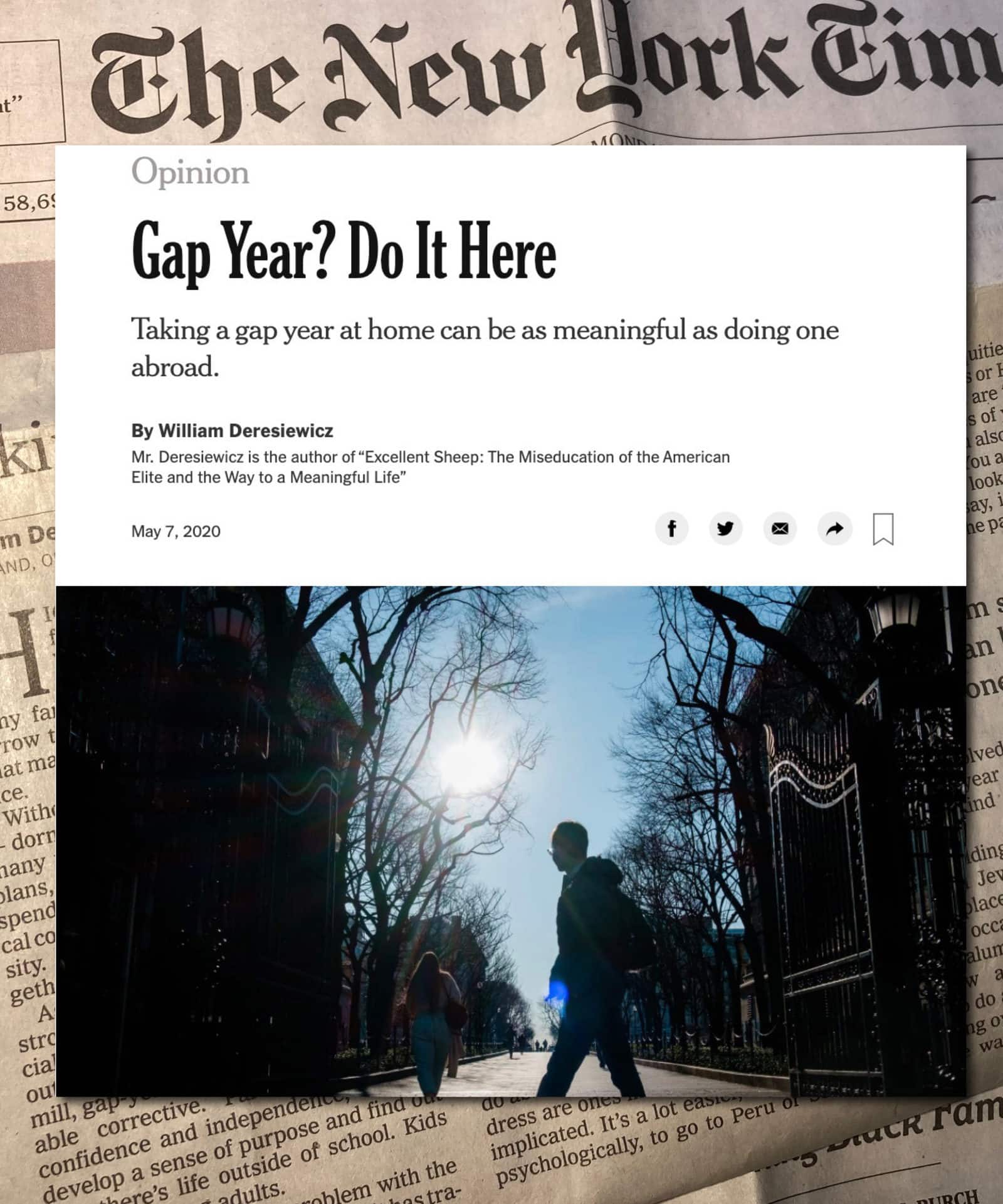 Featured in The New York Times
Featured in The New York Times